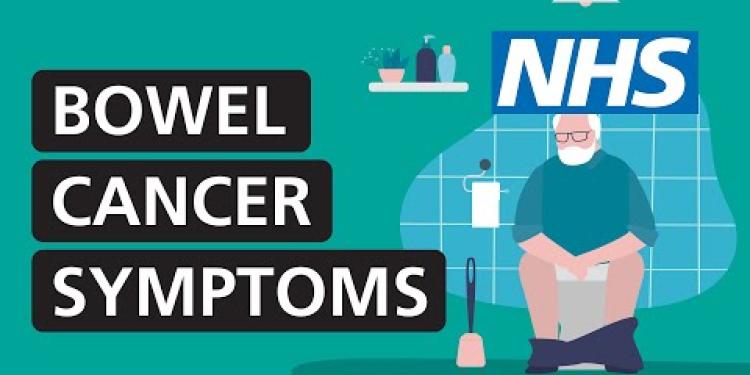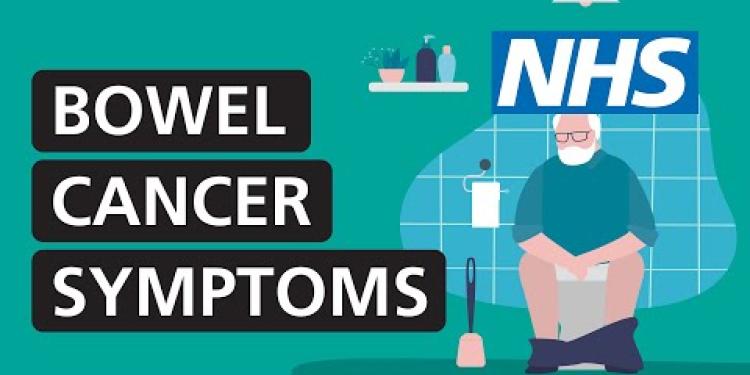Important Information On Using This Service
- Ergsy carefully checks the information in the videos we provide here.
- Videos shown by YouTube after a video has completed have NOT been reviewed by ERGSY.
- To view, click the arrow in the center of the video.
Using Subtitles and Closed Captions
- Most of the videos you find here will have subtitles and/or closed captions available.
- You may need to turn these on and choose your preferred language.
Turn Captions On or Off
- Go to the video you'd like to watch.
- If closed captions (CC) are available, settings will be visible on the bottom right of the video player.
- To turn on captions, click settings.
- To turn off captions, click settings again.
Find A Professional
More Items From Ergsy search
-

Evidence-Based Interventions: haemorrhoid surgery
Relevance: 100%
-

Evidence-Based Interventions: snoring surgery in the absence of Obstructive Sleep Apnoea (OSA)
Relevance: 97%
-

Evidence-Based Interventions: grommets for glue ear in children
Relevance: 78%
-

Evidence-Based Interventions: tonsillectomy for recurrent tonsillitis surgery
Relevance: 77%
-

Evidence-Based Interventions: breast reduction
Relevance: 77%
-

Evidence-Based Interventions: injections for non-specific low back pain without sciatica
Relevance: 75%
-

SLaM's Suicide Prevention, Learning and Support Strategy
Relevance: 74%
-

The Delirium Question on Patientrack
Relevance: 64%
-

Current Challenges in Youth Mental Health Services
Relevance: 60%
-

NHS RightCare Scenario: Sepsis
Relevance: 58%
-

Developmental Coordination Disorder (DCD) for Children and Young People
Relevance: 58%
-

Suicide and Self Harm Prevention Strategy 2023-28
Relevance: 55%
-

My baby has a hearing loss - what next?
Relevance: 53%
-

FASD Foetal alcohol
Relevance: 51%
-

Childhood dyspraxia: James' story | NHS
Relevance: 51%
-

Newcastle Specialist Continence Service's Light Urinary Incontinence Project
Relevance: 50%
-
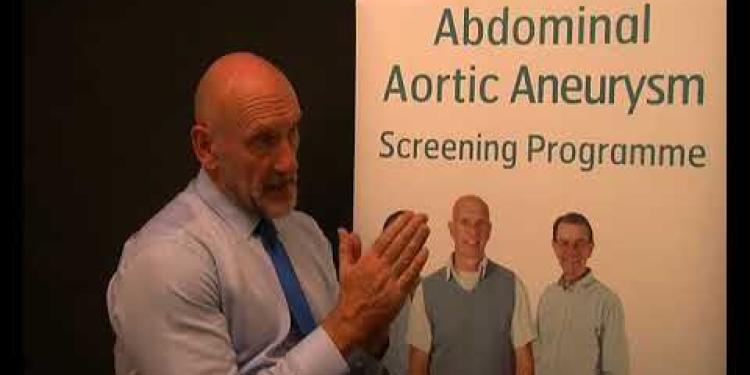
AAA (Abdominal aortic aneurysm) screening
Relevance: 43%
-

Autism: Graeme's story | NHS
Relevance: 43%
-

Giving Voice - Stammer and Fluency Problems
Relevance: 40%
-

Autism Assessment - What Happens in Your Appointment
Relevance: 40%
-

Living with Foetal Alcohol Spectrum Disorder (FASD), a mum’s journey (full version)
Relevance: 39%
-

Survivor of an Abdominal Aortic Aneurysm rupture appeals for men to take up NHS Screening Programme.
Relevance: 38%
-

Live Fear Free - The Effect of Domestic Abuse on Children
Relevance: 38%
-

Dyspraxia Children: How to Help
Relevance: 38%
-

What treatments are available for obesity?
Relevance: 36%
-

Stammering myth 4: You should ignore a child's stammer
Relevance: 36%
-

The NHS Long Term Plan for learning disability and autism
Relevance: 36%
-
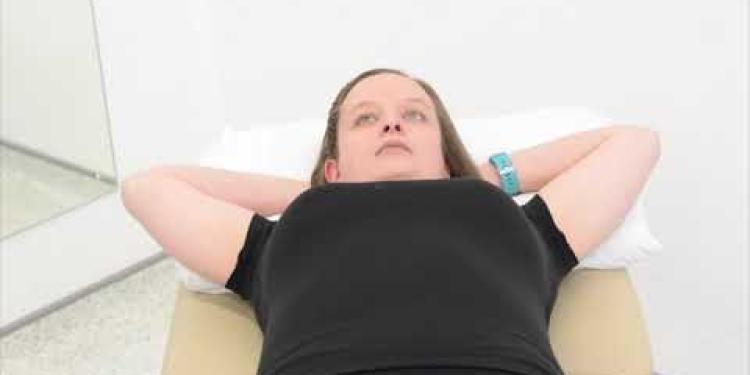
Frozen Shoulder Lateral Rotation
Relevance: 36%
-

Swallowing awareness - dysphagia
Relevance: 34%
-

Down's syndrome: Emily's story | NHS
Relevance: 34%
-

Profound intellectual and multiple disabilities | NHS
Relevance: 33%
-

Sepsis - a patient story
Relevance: 32%
-

Dyslexia, Dyspraxia & Overlapping Learning Difficulties
Relevance: 32%
-
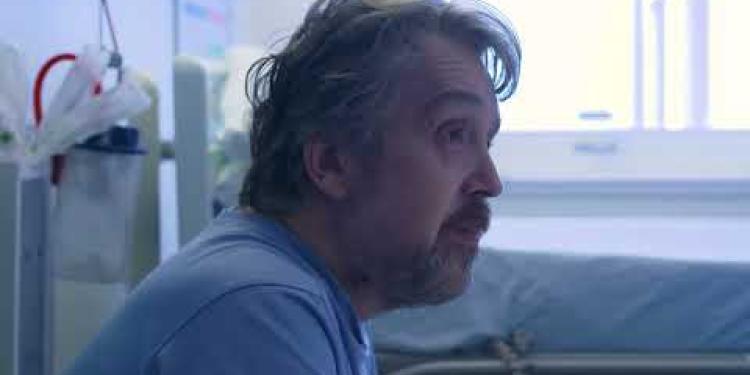
NHS Forth Valley’s Stroke Team
Relevance: 32%
-

Dorothy's Story (Falls/Chest Infection)
Relevance: 31%
-

Self Harm
Relevance: 31%
-
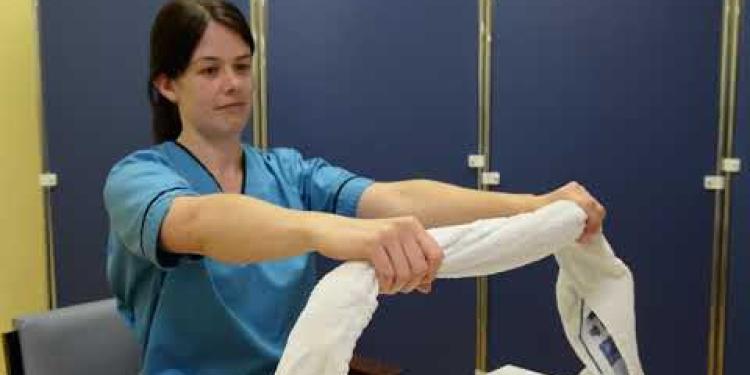
Elbow
Relevance: 30%
-

The treatment approach for an eating disorder
Relevance: 28%
-
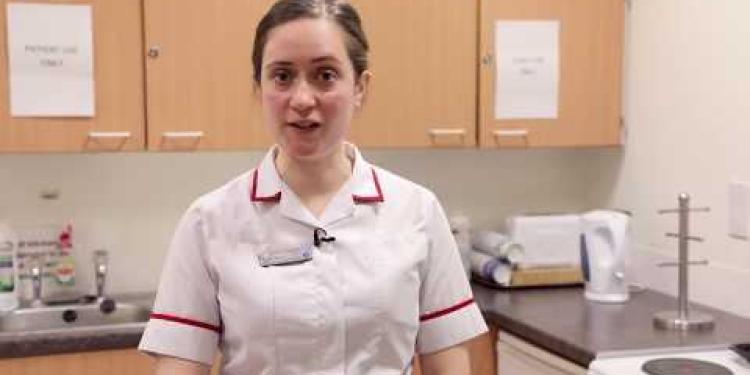
Stroke - Speech and Language Therapist's Experience
Relevance: 28%
-

Children With Co-ordination Difficulties and Dyspraxia
Relevance: 28%
Evidence-Based Interventions: Haemorrhoid Surgery
Understanding Haemorrhoids
Haemorrhoids, also known as piles, are swollen veins in the lower rectum and anus, causing discomfort, pain, itching, and occasional bleeding. They can be classified as internal or external based on their location. While haemorrhoids are a common condition, affecting about 1 in 4 people in the United Kingdom at some point in their lives, they often require medical attention when home treatments prove ineffective.
When is Haemorrhoid Surgery Necessary?
Haemorrhoid surgery is considered when conservative treatments such as lifestyle changes, topical medications, and non-surgical interventions fail to provide relief. Indications for surgical intervention include chronic pain, significant bleeding, and prolapse of haemorrhoidal tissue. A comprehensive assessment by a healthcare professional is essential for determining the suitability of surgical intervention.
Types of Haemorrhoid Surgery
Several surgical options exist for treating haemorrhoids. The main evidence-based interventions include:
Haemorrhoidectomy
Haemorrhoidectomy is the surgical removal of haemorrhoids and is considered the most effective treatment for large, severe or recurrent haemorrhoids. There are two main types: open haemorrhoidectomy where wounds are left open to heal naturally, and closed haemorrhoidectomy where wounds are stitched closed. This procedure provides long-term relief but involves a longer recovery period and more postoperative pain management.
Stapled Haemorrhoidopexy
Stapled haemorrhoidopexy, also known as stapling, is a less painful alternative to traditional haemorrhoidectomy. It involves using a circular stapling device to reposition the haemorrhoidal tissue and cut off the blood supply, leading to shrinkage. This technique is associated with a quicker recovery period and less postoperative discomfort but may carry a higher risk of haemorrhoid recurrence.
Haemorrhoidal Artery Ligation (HAL)
HAL, also known as Doppler-guided haemorrhoidal artery ligation, involves locating and tying off the arteries supplying blood to the haemorrhoids using a Doppler ultrasound probe. This minimally invasive procedure reduces blood flow to the haemorrhoids, causing them to shrink. HAL is associated with less postoperative pain and quick recovery, making it a preferred option for some patients.
Postoperative Care and Recovery
Postoperative care following haemorrhoid surgery is crucial for ensuring a successful recovery. This includes pain management, maintaining a high-fibre diet, staying hydrated, and following proper hygiene practices to minimise infection risk. Patients should expect a recovery period of several weeks before returning to normal activities. Regular follow-up appointments with a healthcare provider are essential to monitor healing and manage any complications.
Conclusion
Haemorrhoid surgery is an effective intervention for managing severe or persistent haemorrhoids. With various evidence-based surgical options available, it is important to consult with a specialist to determine the most appropriate treatment based on individual circumstances. By understanding the different types of haemorrhoid surgery and postoperative care requirements, patients in the United Kingdom can make informed decisions for optimal health outcomes.
Evidence-Based Treatments: Surgery for Haemorrhoids
What Are Haemorrhoids?
Haemorrhoids are also called piles. They are swollen veins in the bottom area. They can be inside or outside the body. Haemorrhoids can be uncomfortable and cause pain, itching, and sometimes bleeding. They are common and affect many people, about 1 in 4 in the UK. Sometimes, you need to see a doctor if home treatments do not work.
When Do You Need Haemorrhoid Surgery?
You might need surgery if simple treatments like eating more fibre, using creams, or other methods do not help. Surgery is needed for bad symptoms like ongoing pain, a lot of bleeding, or when the haemorrhoids come out of the body. A doctor will check and decide if surgery is the best option.
Types of Haemorrhoid Surgery
There are different surgeries to help with haemorrhoids. Here are the main ones:
Haemorrhoidectomy
This surgery removes haemorrhoids completely. It's best for big or painful haemorrhoids. There are two ways to do it: one leaves the wound open to heal by itself, and the other closes the wound with stitches. It works well but takes longer to recover and can be painful after.
Stapled Haemorrhoidopexy
This option is less painful than a haemorrhoidectomy. A special tool is used to move haemorrhoids back inside and cut blood supply, so they shrink. Recovery is faster and less painful, but there is a chance they might come back.
Haemorrhoidal Artery Ligation (HAL)
HAL uses a special tool to find and tie off blood vessels to haemorrhoids. This makes them shrink. It's less painful and you recover faster, so many people like this option.
After Surgery Care and Healing
Taking care of yourself after surgery is very important to heal well. This means managing pain, eating foods with fibre, drinking plenty of water, and keeping the area clean to prevent infection. It usually takes a few weeks to feel better and return to normal. Regular check-ups with your doctor are needed to make sure everything heals properly.
Conclusion
Surgery can help when haemorrhoids are severe and don't get better with other treatments. There are different types of surgery, so it’s important to talk to a doctor to find out which is best for you. By knowing about the surgeries and how to take care after, people in the UK can make smart decisions for their health.
Tools like picture cards or audiobooks can be helpful for understanding the information better. Remember to ask a family member or friend if you need help understanding what the doctor says.
Frequently Asked Questions
What are haemorrhoids?
Haemorrhoids, also known as piles, are swollen blood vessels in and around the rectum and anus.
What are the symptoms of haemorrhoids?
Symptoms include itching, pain, swelling, and bleeding during bowel movements.
When is surgery recommended for haemorrhoids?
Surgery is usually recommended if other treatments have failed, if the haemorrhoids are particularly large, or if complications occur.
What types of surgery are available for haemorrhoids?
Common surgical options include haemorrhoidectomy, haemorrhoidopexy, and minimally invasive procedures like rubber band ligation.
What is a haemorrhoidectomy?
A haemorrhoidectomy is a surgical procedure to remove excessive haemorrhoidal tissue.
What is stapled haemorrhoidopexy?
Stapled haemorrhoidopexy involves the removal of haemorrhoidal tissue and stapling of the remaining tissue to reduce blood supply to the haemorrhoids.
What should I expect during recovery from haemorrhoid surgery?
Recovery usually involves some pain and discomfort, and can take from a few days to several weeks, depending on the type of surgery.
Are there risks associated with haemorrhoid surgery?
As with any surgery, there are risks such as infection, bleeding, and complications related to anaesthesia.
Will my haemorrhoids come back after surgery?
There is a possibility of recurrence, especially if underlying causes like constipation are not addressed.
Is haemorrhoid surgery covered by the NHS?
Yes, in the United Kingdom, haemorrhoid surgery is typically covered by the NHS if it is deemed medically necessary.
How long does haemorrhoid surgery take?
The duration of the surgery can vary, but it generally takes between 30 and 60 minutes.
What type of anaesthesia is used for haemorrhoid surgery?
Haemorrhoid surgeries can be performed under local, regional, or general anaesthesia, depending on the type of procedure and patient needs.
What are the alternatives to haemorrhoid surgery?
Alternatives include lifestyle changes, over-the-counter treatments, prescription medications, and non-surgical procedures such as rubber band ligation or sclerotherapy.
How can I prevent haemorrhoids from forming again after surgery?
Prevention strategies include maintaining a high-fibre diet, drinking plenty of fluids, exercising regularly, and avoiding straining during bowel movements.
Do I need to stay in hospital after haemorrhoid surgery?
Some procedures may allow you to go home the same day, while others may require a short hospital stay for monitoring and recovery.
What are piles?
Piles are lumps in and around the bottom. They are sometimes called haemorrhoids.
Signs of piles can be itching, pain, or seeing blood when you go to the toilet.
There are things you can do to feel better:
- Sit in warm water for 10 minutes.
- Use soft toilet paper.
- Eat more fruits and veggies to help you poo.
- Talk to a doctor if it hurts a lot.
These tips can help, but it’s always good to ask for help if you need it.
Haemorrhoids, or piles, are when blood vessels get big and swollen near your bum and the end of your bottom.
What are the signs of piles?
Piles are lumps in your bottom. Here are some signs:
- Your bottom may itch or hurt.
- You might see blood when you go to the toilet.
- You may feel a lump around your bottom.
Remember, it's good to tell a grown-up or a doctor if you feel any of these signs.
To help understand better, you can:
- Use a picture book about the body.
- Ask someone you trust to explain it to you.
Signs you might notice are feeling itchy, feeling hurt, getting puffy or swollen, and bleeding when you go to the toilet.
When do doctors say you need an operation for piles?
Piles are lumps in your bottom that might hurt or bleed. Sometimes, piles need special help from doctors.
Doctors might say you need an operation to fix piles if:
- The piles hurt a lot.
- The piles bleed a lot.
- Other treatments did not work.
If you have piles, talk to your doctor. They will tell you the best way to make you feel better.
Here are some things that might help with piles:
- Eat more fruits and vegetables.
- Drink lots of water.
- Try not to sit for too long.
Doctors might say you need surgery to fix piles if other treatments don’t work, if the piles are really big, or if they cause big problems.
Some things can help you:
- A friend or family member can come with you to doctor visits to help you understand better.
- A notebook to write down what the doctor says can help you remember later.
- Having pictures or drawings can make it easier to understand what surgery is.
What kinds of surgery can help with piles?
Doctors can do surgeries to help if you have piles. Piles are also called haemorrhoids.
Here are some types of surgery:
- Banding: The doctor puts a small band around the pile. This makes it go away.
- Injection: The doctor gives medicine with a needle. This makes the pile shrink.
- Coagulation: The doctor uses a light or laser. This makes the pile smaller.
- Hemorrhoidectomy: The doctor takes out the pile. This makes it go away completely.
- Stapling: The doctor uses a stapler tool. This makes the pile go back inside the body.
If you have questions, you can:
- Ask your doctor.
- Use pictures to help understand.
- Talk to someone for support.
Doctors can do a few different types of surgery for piles. These include:
- Cutting the piles away (haemorrhoidectomy)
- Stapling the piles back inside (haemorrhoidopexy)
- Using a small band to stop blood in the piles (rubber band ligation)
What is a haemorrhoidectomy?
A haemorrhoidectomy is an operation to remove haemorrhoids. Haemorrhoids are swollen veins in the bottom. They can hurt and bleed.
If you need a haemorrhoidectomy, the doctor will talk to you about it. They will explain how it helps. It’s done in a hospital.
If you want help to read this, you can:
- Ask someone to read it with you.
- Use a text-to-speech app to hear it.
- Draw pictures to help understand the words.
A haemorrhoidectomy is an operation to take away piles, which are swollen areas in your bottom.
What is stapled haemorrhoidopexy?
Stapled haemorrhoidopexy is a simple surgery. It helps people with piles, also called haemorrhoids. The doctor uses a tool to push the piles back inside. A special stapler keeps them in place. This can stop pain and bleeding.
If you have more questions, ask your doctor. Picture books or videos about piles can also help you understand. You can talk to a nurse to make things clearer. They are there to help you feel better.
Stapled haemorrhoidopexy is a way to help when you have piles, which are sore bumps in your bottom. The doctor takes out some of the sore tissue and uses staples to hold the rest in place. This helps stop the bumps from getting too much blood, so they get smaller.
If reading is hard, you can try listening to an audio book, using an e-reader with big text, or asking someone to read with you.
What happens after piles surgery?
You might want to know what happens after you have piles removed. Piles are also called haemorrhoids. The surgery helps to make you feel better. Here are some things you can expect:
- Pain: You might feel sore where the piles were taken out. You can use medicine to help it hurt less. Ask your doctor which medicine is best.
- Rest: It's important to rest and not do too much. Let your body heal.
- Bleeding: You might see a little blood. This is normal. If it doesn't stop, talk to your doctor.
- Eating: Eat healthy food to help you go to the toilet easily. This will stop you from straining.
- Follow-Up: Your doctor will want to see you again to make sure everything is okay.
Make sure to ask for help if you need it. It's okay to ask questions so you feel safe and get better faster.
Getting better after surgery can hurt and feel uncomfortable. How long it takes to feel better can be from a few days to many weeks. It depends on the type of surgery you had.
Here are some tips that might help:
- Ask your doctor about medicine to help with pain.
- Rest when you need to. Don't do too much too soon.
- Follow any instructions from your doctor or nurse.
- If reading is hard, ask someone you trust to help read things to you.
- Use tools like audiobooks or speech-to-text apps to help with reading.
Are there any risks with piles surgery?
Piles surgery can help fix the problem, but there are some risks. Here are some things that might happen:
- You might feel pain afterwards.
- You could have bleeding.
- Sometimes, infections happen.
It's important to talk to your doctor. They can explain everything and help you understand. You can also ask a family member to be with you when you talk to the doctor. Taking notes or using pictures might help too.
When you have an operation, some things can go wrong. You might get an infection, which means you could get sick. You might also bleed a lot. Sometimes, the medicine that makes you sleep during the operation, called anaesthesia, can cause problems too.
Will my Piles Return After Surgery?
Surgery can help fix piles. But sometimes, they might come back.
Here are some tips to help:
- Eat more fiber, like fruits and veggies.
- Drink lots of water.
- Avoid sitting for too long.
- Go to the bathroom when you need to.
If you have worries, talk to your doctor. They can help you feel better.
It might happen again if we do not fix the problems that cause it, like not going to the toilet regularly.
Does the NHS pay for piles surgery?
Piles are sore lumps around your bottom.
Here are some tips to help understand the question:
- Use simple words: "Piles" instead of "haemorrhoids".
- Read slowly and take your time.
- Ask someone to read it with you if it's still hard to understand.
Yes, in the UK, if a doctor says you need surgery for piles, the NHS will usually pay for it.
How long is haemorrhoid surgery?
Haemorrhoid surgery is an operation to help with sore piles.
It usually takes about 30 minutes to 1 hour.
After the surgery, people often stay at the hospital for a little while.
Ask a doctor or nurse if you have more questions.
Tools like pictures or videos can also help you understand.
The surgery usually takes a short time. It can be between 30 minutes and 60 minutes.
What kind of sleep medicine is given for piles surgery?
When someone has surgery for piles, doctors give them a special medicine. This medicine is called sleep medicine. It helps you sleep and not feel pain during the surgery.
If you want help understanding more about this, you can:
- Ask a doctor or nurse to explain it to you.
- Use videos or pictures to see how it works.
- Ask someone you trust to read with you.
Doctors can do haemorrhoid surgeries using different kinds of medicine to help you not feel pain. They can use medicine that works only in one area, the whole lower part of your body, or your entire body. It depends on the type of surgery and what you need.
What else can you do instead of haemorrhoid surgery?
If you have haemorrhoids, there are other ways to help. Here are some things you can try:
- Eat more fibre: Foods like fruits, vegetables, and whole grains can help stools move easily.
- Drink water: Lots of water can keep your stools soft.
- Use creams or ointments: Special creams can make haemorrhoids hurt less.
- Try sitting in warm water: A warm bath can help you feel better.
- Talk to a doctor: A doctor can give more ideas to help without surgery.
If reading is difficult, try these tips:
- Use a ruler or finger to follow the words.
- Read out loud to help understand.
- Take breaks if you feel tired.
You can ask someone to read with you. It is okay to ask for help!
There are different ways to help. You can change the way you live, buy medicine from the store, get medicine from the doctor, or try special treatments like using a rubber band or a special injection.
How can I stop piles from coming back after an operation?
How to stay healthy:
- Eat foods with lots of fiber, like fruits and vegetables.
- Drink plenty of water every day.
- Make sure to exercise often.
- Try not to push too hard when using the bathroom.
If you need help with reading, you can:
- Use apps that read text out loud.
- Ask someone to read with you.
Do I need to stay in the hospital after piles surgery?
If you have surgery to remove piles (haemorrhoids), you might not need to stay in the hospital overnight.
Doctors usually let people go home the same day.
But you should follow your doctor's advice. They know what's best for you.
Having a friend or family member help you get home is a good idea.
Use tools like a calming app or listen to relaxing music to feel better after surgery.
After some treatments, you can go home the same day. But other treatments need you to stay in the hospital for a short time so doctors can check on you and help you get better.
Useful Links
Useful links from: Bleeding from the bottom rectal bleeding
- NHS - Rectal Bleeding The NHS provides comprehensive information on rectal bleeding, detailing common causes, symptoms, and when to see a doctor. It also covers possible treatment options and preventive measures.
- NHS Inform - Gastrointestinal Bleeding NHS Inform offers detailed guidance on gastrointestinal bleeding, including rectal bleeding. The page provides insights into symptoms, causes, diagnostic procedures, and treatments available in the UK.
- Bowel Cancer UK - Symptoms and Diagnosis Bowel Cancer UK provides information about the symptoms of bowel cancer, including rectal bleeding. The site discusses risk factors, diagnosis processes, and when to be concerned about bleeding.
- Crohn’s & Colitis UK - Living with IBD Crohn's & Colitis UK discusses living with Inflammatory Bowel Disease, which can cause rectal bleeding. The site provides advice on managing symptoms, including dietary suggestions and accessing healthcare support.
Useful links from: Bleeding from the bottom rectal bleeding
- NHS - Rectal Bleeding This page provides an overview of rectal bleeding, including potential causes, symptoms, and when to seek medical advice.
- NHS - Bowel Cancer The NHS resource on bowel cancer, detailing symptoms including rectal bleeding, diagnosis, treatment options, and prevention tips.
- Bowel Cancer UK - Symptoms Bowel Cancer UK provides information on bowel cancer symptoms such as rectal bleeding, and offers guidance on when to consult a healthcare professional.
- Crohn’s & Colitis UK - Symptoms This Crohn’s & Colitis UK publication focuses on rectal bleeding as a symptom of inflammatory bowel disease and offers advice for patients.
More Videos of Interestdiagnosis
Have you found an error, or do you have a link or some information you would like to share? Please let us know using the form below.
- Ergsy carfully checks the information in the videos we provide here.
- Videos shown by Youtube after a video has completed, have NOT been reviewed by ERGSY.
- To view, click the arrow in centre of video.
- Most of the videos you find here will have subtitles and/or closed captions available.
- You may need to turn these on, and choose your preferred language.
- Go to the video you'd like to watch.
- If closed captions (CC) are available, settings will be visible on the bottom right of the video player.
- To turn on Captions, click settings .
- To turn off Captions, click settings again.

